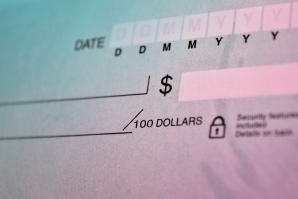
Dilemma of the Month: Professional Work on Your Personal Cell
Where to set boundaries and how to maintain them
I work at a marketing company and often work long hours. Sometimes issues come up outside of the office, and I frequently find myself using my cellphone (and personal computer) for work. Am I required to do this and if not, how can I respectfully set limitations?

How to Make Flexible Work Schedules a Reality
Surveys have found that more than half of employers offer some sort of flexible work arrangement, from telecommuting to flex time. But many of the employees that take advantage of that flexibility say they’re made to feel like slackers. An Ernst & Young survey concluded that one in 10 workers in the U.S. have “suffered a negative consequence as a result of having a flexible work schedule.”

Digital Hiring
Don't sink too much cash into online job sites
I’m overseeing the hire of a new leadership position. We want to post the position online, but there are so many options, including up-sells to “featured posting” and the like. How do I write a compelling job description that will attract top-notch potential employees, and how do I best use my dollars — some of these sites are expensive!

What Happens When Nobody Wants to Be the Boss?
Job growth and wages are on the rise, which should signal a great time for businesses in the U.S.—except that no one wants to run them. Only one-third of U.S. workers believe becoming a manager will advance their careers, according to recent survey by professional staffing website Addison Group.

I’m Exempt — What Does That Mean?
If you feel you're owed flexibility, you're wrong
I just started a new job where I am an exempt employee. When I started, I was asked to provide a “regular work schedule” that I selected as 7:30 a.m.-4:00 p.m. When I inquired about coming in at 8:30 on Monday and Friday mornings, my employer said they didn’t favor that and as a new employee, I didn’t feel comfortable pushing back. As an exempt employee, what are the rules about standard hours?

The Decline of the Office Holiday Party
The economy is recovering, companies are spending more on benefits, employee satisfaction and retention are being monitored. And the holiday party is declining. Could it be that people don’t like it?

Machines Are Better Than Humans at Hiring the Best Employees
People want to believe they have good instincts, but when it comes to hiring, they can’t best a computer. Hiring managers select worse job candidates than the ones recommended by an algorithm, new research from the National Bureau of Economic Research finds.

Difficult Employees with Good Intentions
Don’t give up on a great worker who can’t communicate
You might experience a scenario like this at the office: A colleague, boss or employee is incredibly gifted; they are technically skilled, knowledgeable, strategic and very smart. But a frustrating paradox is that they are terrible communicators: unable to take on other’s perspectives, constantly interrupting and long-winded, putting themselves ahead of others, defensive, inflexible, emotional — you get the drift.

6 Tips for Avoiding an Office Party Nightmare
It’s not just about avoiding intoxication, but that’s on here too
Mention “office party,” and someone is going to have a juicy story, usually involving alcohol-impaired behavior. But according to local experts, your company’s holiday party doesn’t have to be a date that lives in infamy.

Exempt Versus NonExempt: Why You Need to Know the Difference
Misclassifying could cost your business megabucks
You have 10 seconds to name the key differences that determine if an employee is exempt or nonexempt. Ready, set, go. Oh, you couldn’t do it? Color me surprised. Whether you’re an employer or an employee, not knowing the difference between the two is doing yourself a huge disservice, and, as an employer, can land you in some hot – scalding hot – water.


